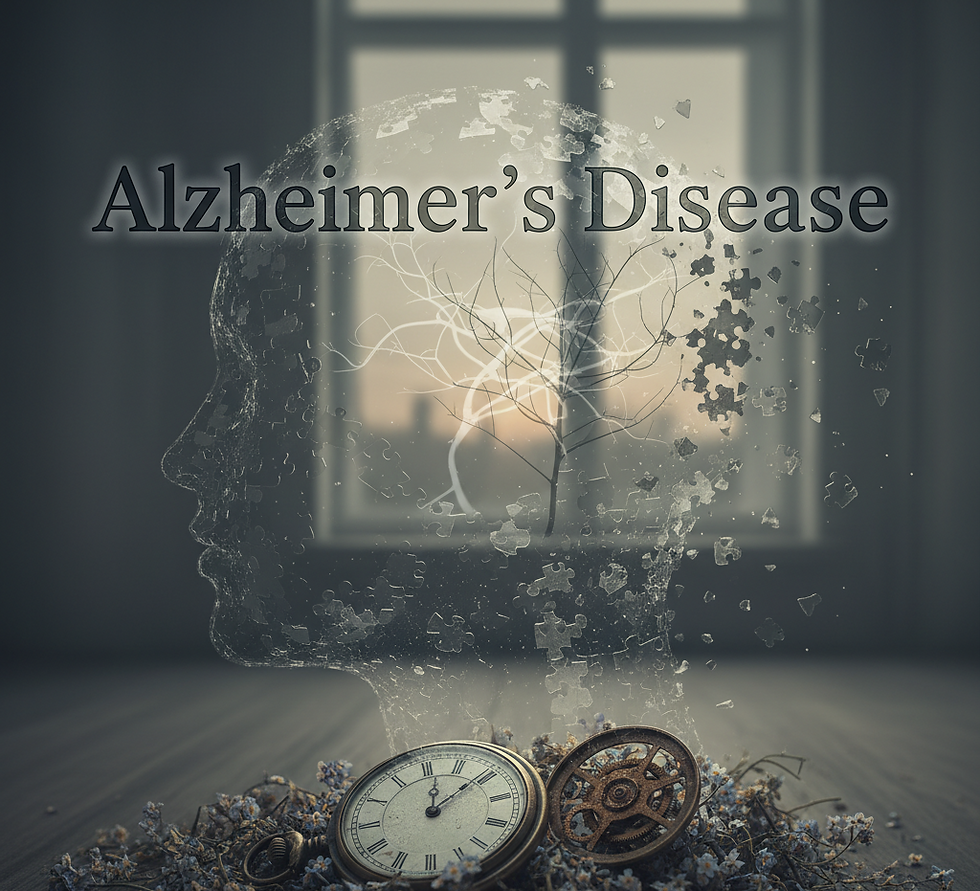Alzheimer's Disease
- NCRF

- Sep 25, 2025
- 1 min read

Overview of Alzheimer's Disease
Alzheimer's Disease is a progressive neurological disorder that primarily affects memory and cognitive function. It is the most common cause of dementia among older adults, leading to a decline in the ability to perform everyday activities.
Symptoms
Memory loss
Difficulty in problem-solving or planning
Confusion with time or place
Challenges in understanding visual images and spatial relationships
Changes in mood and personality
Withdrawal from social activities
Causes and Risk Factors
Age: The risk increases as people get older.
Family history: Genetics can play a role in the likelihood of developing the disease.
Down syndrome: Individuals with Down syndrome are at a higher risk.
Head injuries: Severe or repeated head trauma may increase risk.
Heart health: Conditions affecting heart health can also impact brain health.
Diagnosis
Diagnosing Alzheimer's involves a combination of medical history, cognitive tests, and sometimes brain imaging. Early diagnosis can help in managing symptoms and planning for the future.
Treatment
While there is currently no cure for Alzheimer's Disease, treatments are available that can temporarily slow the progression of symptoms:
Medications: Cholinesterase inhibitors and memantine are commonly prescribed.
Therapy: Cognitive stimulation therapy and other supportive therapies can help improve quality of life.
Conclusion
Understanding Alzheimer's Disease is crucial for early intervention and support. Ongoing research continues to explore potential treatments and preventive measures.


Comments